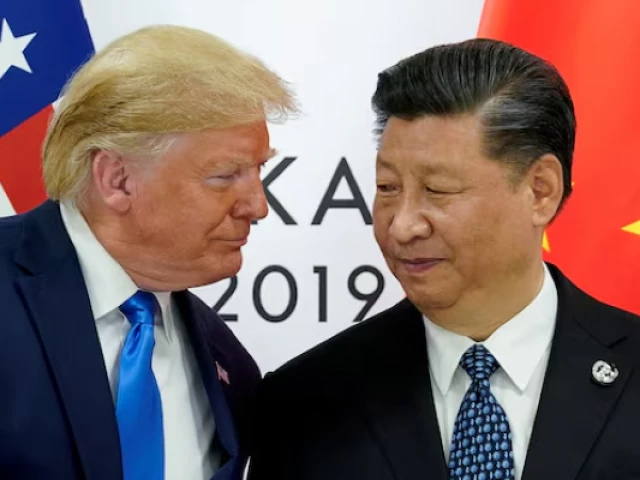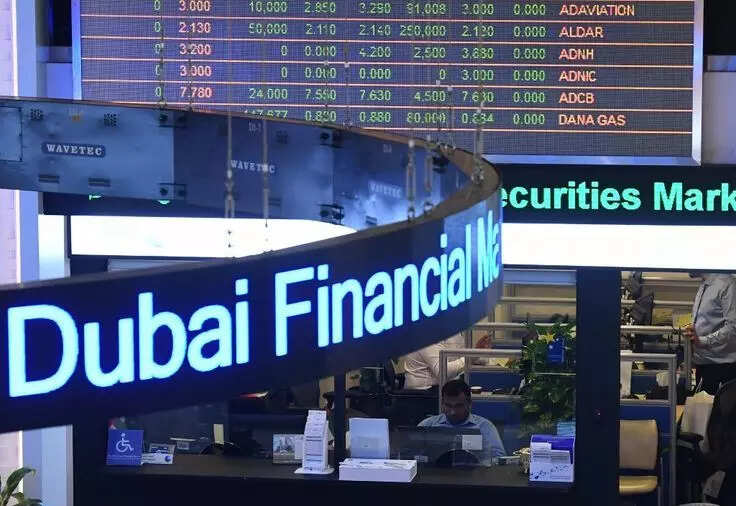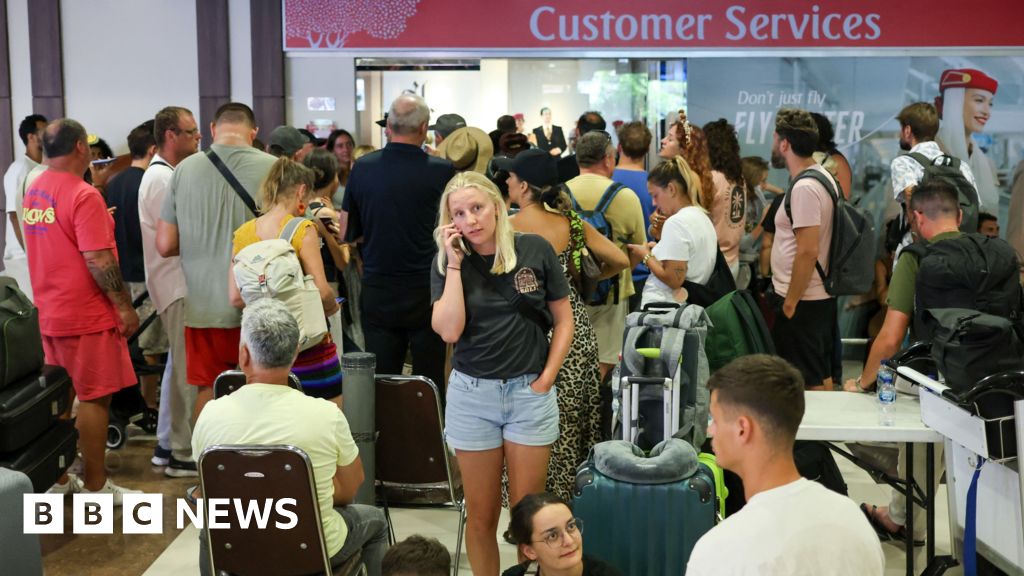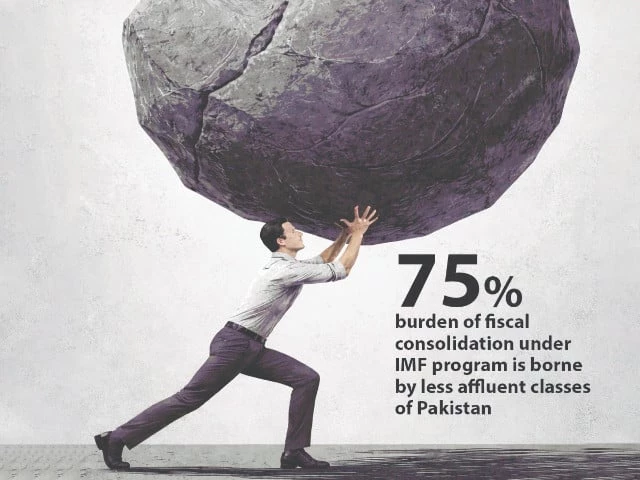Business
Xi-Trump summit call bodes well for global economy | The Express Tribune

KARACHI:
Amid deepening geopolitical fault lines and a fragile global economy, a nearly two-hour-long phone call between Chinese President Xi Jinping and his American counterpart Donald Trump on September 19 produced a rare moment of clarity in the world’s most consequential bilateral relationship.
The phone conversation – described by Beijing as “pragmatic, positive and constructive” and by Washington as “very productive” – signals a mutual willingness to ease tensions.
Just days earlier, top Chinese and US officials concluded their fourth round of talks in Madrid, Spain, where they discussed contentious issues such as Trump’s unilateral tariffs, export controls, the future of TikTok, and potential collaboration on combating money laundering. The key outcome of the two-day discussions was a “framework” deal regarding the Chinese-owned popular video-sharing platform.
The Xi-Trump phone call – the third direct conversation between the two since Trump’s return to the White House in early 2025 – reflects that both sides recognise the importance of leader-to-leader diplomacy in chaotic times. The “candid conversation” the two had covered a wide range of topics, including trade disputes, the TikTok controversy, historical ties, and their shared responsibility to maintain global peace.
The summit call was important both in symbolism and in substance. It came shortly after an impressive military parade China staged to commemorate its victory against Japan in World War II. Xi recalled the China-US wartime alliance and the contributions of American pilots, saying that the families of the “Flying Tigers” were also invited to the parade to honour their sacrifices in China’s “anti-fascist struggle.” The underlying message in Xi’s reference was a subtle call for a renewed commitment to peace and cooperation in today’s turbulent world.
Beijing remains wary of what it sees as an increasingly confrontational posture by the US, driven by Washington’s concern that an “autocratic” China may seek to upend the “liberal democratic world order” and ultimately topple America as the dominant global power. This perceived threat informs much of the US approach – politically, diplomatically, economically, and strategically. This is despite repeated reassurances from the Chinese leadership that the world is “big enough” for both powers to coexist in a mutually respectful and cooperative relationship.
The crux of Xi’s message was conciliatory: the world’s two largest economies, the US and China, are capable of pursuing a symbiotic relationship – provided Washington gives up a zero-sum mindset and both sides commit to working in the same direction towards mutual benefit. At the same time, however, the Chinese leader also reaffirmed his country’s firm stance on major bilateral issues. On trade, he warned against unilateral protectionist measures and stressed the need to build on the progress made in four rounds of negotiations between the two sides.
The latest round of talks was consumed by discussions on TikTok, producing a “framework” agreement that the US later touted as a victory. Xi, however, reiterated that Beijing only supports a resolution that aligns with market principles and Chinese laws while serving the interests of both sides. And this stance is reflected in the unofficially disclosed contours of the deal, which is set to be a joint venture in which ByteDance, TikTok’s parent company, will retain nearly 20% ownership.
Xi also urged Trump to create an “open, fair, and non-discriminatory” environment for Chinese businesses operating in the US, stressing that protectionist policies undermine trust and damage long-term economic interests.
Trump, for his part, struck a similarly conciliatory tone, describing America’s ties with China as “the most important bilateral relationship in the world.” He said Washington desired a “long-term, big and great” relationship with Beijing and acknowledged the importance of collaboration in achieving global peace and stability. Trump also praised the “V Day” parade in Tiananmen Square as “phenomenal and beautiful,” adding a personal touch to the conversation.
It is unrealistic to expect a single call will resolve deep-seated issues, including trade imbalances, technology disputes, and geopolitical rivalries. Any sign of a thaw in their relations is a welcome development, especially against the backdrop of a trade war reignited by Trump after returning to the White House and surrounding himself with “China hawks” in his second administration.
The positive tone between the two leaders resonated far beyond Beijing and Washington. Global markets responded immediately, with major US stock indices, including the Dow Jones Industrial Average, the S&P 500, and the Nasdaq Composite, rallying on renewed optimism about trade stability.
This market confidence reinforces a broader truth: the US-China relationship doesn’t just affect the two superpowers – it impacts the entire world. From international supply chains to climate action, from pandemic preparedness to technology governance, cooperation between the world’s No 1 and No 2 economies is not just important – it is essential.
The World Bank and IMF have consistently warned against US-China economic decoupling, saying it poses huge risks to the global economy as it could disrupt global supply chains, deter international investment, and ultimately hinder economic growth.
A 2021 IMF study found that technological decoupling between the US and China could shrink global GDP by up to 5%. A more recent IMF analysis in 2024 projected that full economic fragmentation could slash global GDP by as much as 7% in the long term – equivalent to $7.4 trillion.
A 2023 World Bank report, however, cautioned that these figures may underestimate the true impact. It warned that the disruption of complex, specialised supply chains could render some critical industries unable to function effectively in a divided global economy.
Any deal on key issues, including US access to rare earth metals and China’s purchase of Russian oil and access to US semiconductor chips, may be unlikely until October when the two leaders will meet face-to-face on the sidelines of a regional summit in South Korea.
The cost of a trade war spiralling between the two economic powerhouses would be immense, particularly at a time when the world is mired in myriad crises, including ongoing wars in Europe and the Middle East, and growing political and economic uncertainty. Washington must reconsider its approach and pivot from confrontation and containment towards cooperation and collaboration – not just for the benefit of the American and Chinese peoples, but for the greater good of the international community.
The key takeaway from the Xi-Trump summit call is a shared realisation in both Beijing and Washington that, despite the strains in their complex relationship, diplomacy – however imperfect – remains the most effective tool for preventing conflict and shaping the global economic outlook.
The writer is an independent journalist with special interest in geoeconomics
Business
UAE stock markets close, trading halted by Abu Dhabi Securities Exchange and the Dubai Financial Market for two days amid Iran–US–Israel war fallout – The Times of India

In an unprecedented economic response to escalating regional conflict, the United Arab Emirates has announced that its two major financial markets, the Abu Dhabi Securities Exchange (ADX) and the Dubai Financial Market (DFM), will remain closed on Monday, March 2 and Tuesday, March 3, 2026. The decision comes as the UAE reels from a series of retaliatory Iranian strikes following coordinated US and Israeli military actions against Iran, which have destabilised Gulf business sentiment and prompted sweeping security and economic precautions.The UAE Capital Markets Authority said that keeping the exchanges closed temporarily is part of its supervisory and regulatory mandate, providing authorities and market participants time to assess the impact of recent events on financial infrastructure and investor confidence. The halt affects equities, derivatives and trading in hundreds of billions of dollars in listed assets and is among the clearest signs yet of economic shockwaves from the regional crisis.
Why UAE stock markets are paused: Regional conflict among Iran–US–Israel disrupts confidence
The closures follow Iran’s retaliatory missile and drone strikes on Gulf cities and strategic targets, including airports and other infrastructure, after a joint US–Israel offensive. These attacks have not only led to safety measures such as airspace restrictions and travel advisories but also triggered widespread business disruption across the Gulf. Major airports in Dubai and Abu Dhabi have seen operations halted or altered and commercial hubs from ports to retail centres have felt the strain.

UAE Markets Shut Down: Is This Economic Capitulation to Regional War?
Financial markets are typically among the first economic indicators affected by geopolitical instability. When investors fear prolonged unrest, they often pull funds from equities and seek so-called “safe-haven” assets like gold, sovereign debt or commodities such as oil, especially when conflict threatens critical energy supply corridors like the Strait of Hormuz.
Regional market turmoil and knock-on effects in the Middle East amid Iran–US–Israel clashes
While the UAE exchanges are closed, other Gulf markets that remained open on Sunday experienced significant sell-offs as investors reacted to the turmoil:
- Saudi Arabia’s benchmark index saw sharp drops before partially recovering as investors weighed conflict risks against energy price gains.
- Muscat and other regional bourses also slid, reflecting broader risk-off sentiment.
- In Kuwait, authorities took the rare step of suspending trading indefinitely due to “exceptional circumstances” linked to the same regional tensions.
Financial markets are serving as a barometer of risk and economic confidence and the dramatic moves across the Gulf underscore how intertwined political stability is with economic performance in the region.
What the UAE’s stock market closure means for investors
For both domestic and international investors, the temporary shutdown of ADX and DFM has several implications. Liquidity and price discovery are paused, leaving billions of dollars in listed assets in limbo. Risk premiums on Gulf assets may rise, as traders reassess exposure during periods of heightened uncertainty. Investor sentiment is likely to remain fragile until there are visible signs of de-escalation or credible diplomatic resolutions.Economists note that halting trading does not eliminate market pressure, it simply delays it and when markets do reopen, there may be sharp moves as investors recalibrate positions based on new geopolitical and economic realities. The conflict has not just shaken stock markets, energy markets have also reacted. Reports from analysts indicate that crude oil prices have surged as fears of supply disruptions increase, with the Strait of Hormuz, a crucial passage for roughly 20% of global oil exports, under theoretical threat of closure.

UAE Stock Markets Closed: What Does This Mean for Global Investors Amidst Escalating Conflict?
Higher oil prices can partially offset stock market pain in energy-exporting economies like the UAE but the overall economic impact remains complex. Other sectors, from tourism and hospitality to trade and logistics, have also felt immediate fallout: airport shutdowns have stranded travellers and corporate events and networking key to Ramadan business cycles have been postponed, compounding uncertainty.
UAE government messaging and future prospects
UAE authorities have stressed that public and economic safety remain top priorities. The temporary market closure is coupled with broad advisories across transportation, education and public services, such as airports issuing travel advisories and schools moving to remote learning, aimed at ensuring operational stability while the situation evolves. Officials have pledged to monitor conditions closely and communicate updates on any further market action. This includes potential rescheduling of reopening dates for ADX and DFM or additional measures to support investors once trading resumes.The UAE Capital Markets Authority ordered a two-day closure of the Abu Dhabi and Dubai stock markets on March 2–3, 2026, in response to escalating regional tensions. The pause follows retaliatory strikes by Iran after US and Israeli military action, which have disrupted markets, air travel and business operations across the Gulf. Gulf markets that remained open experienced sharp declines and volatility, reflecting investor risk aversion. Oil prices and safe-haven assets have climbed as geopolitical risk fuels global economic uncertainty. Authorities will continue to assess and communicate market developments as conditions evolve.
Business
Flights cancelled as new travel warnings issued after US-Israeli strikes on Iran

BA and Virgin Atlantic are among major airlines to ground services to the Middle East in light of the attacks.
Source link
Business
Two ships hit near Strait of Hormuz as fears grow of oil price rises

International shipping is said to have come to a standstill at the strait’s entrance, with fears of disruption already pushing up global oil prices.
Source link
-

 Business1 week ago
Business1 week agoEye-popping rise in one year: Betting on just gold and silver for long-term wealth creation? Think again! – The Times of India
-

 Politics1 week ago
Politics1 week agoPakistan carries out precision strikes on seven militant hideouts in Afghanistan
-

 Sports1 week ago
Sports1 week agoKansas’ Darryn Peterson misses most of 2nd half with cramping
-

 Tech1 week ago
Tech1 week agoThe Supreme Court’s Tariff Ruling Won’t Bring Car Prices Back to Earth
-

 Tech1 week ago
Tech1 week agoThese Cheap Noise-Cancelling Sony Headphones Are Even Cheaper Right Now
-

 Entertainment1 week ago
Entertainment1 week agoSaturday Sessions: Say She She performs "Under the Sun"
-

 Sports1 week ago
Sports1 week agoHow James Milner broke Premier League’s appearances record
-

 Entertainment1 week ago
Entertainment1 week agoViral monkey Punch makes IKEA toy global sensation: Here’s what it costs













